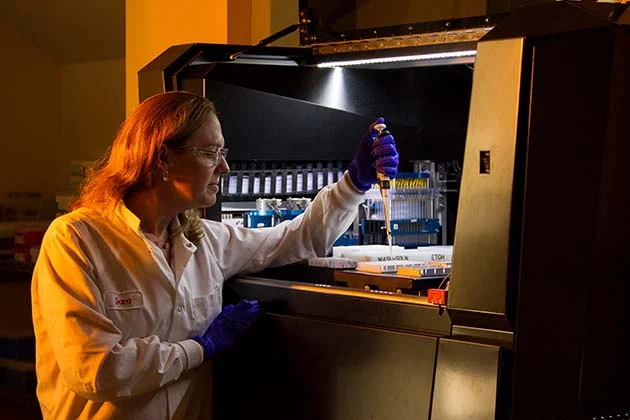Biotechnology companies race to produce pharmaceutical, diagnostic, agricultural, and even environmental innovations that can address society’s needs. As such, it’s no surprise that the U.S. Bureau of Labor Statistics reports that companies will produce approximately 11,800 openings for biological technicians each year over the course of this decade. Now that more companies are trying to solve problems through biotechnology, the employment outlook for biological technicians is expected to grow by 7% from 2020 to 2030.
Recognizing the high demand for biotechnology experts, leaders in biotech companies need to pay closer attention to the value of these professionals. So it is very important that CEOs and industry leaders pay close attention to the value of their human capital, and here’s why:
Understanding Human Capital in the Biotech Industry
More individuals are interested in entering the biotechnology industry, due to society’s many health and environmental issues. Improving society and human lives through their work is one key consideration. However, Jared Auclair of North-eastern states that the field also provides optimal pay, considering that biotechnology students that have graduated with master’s degrees are able to earn between $75,000-$85,000 per year. He points out that this may even be the minimum because the starting pay may actually be higher based on the applicant’s skills and experience.
Human capital in biotechnology companies costs more than in most industries, due to their professional credentials. While this may be a bit painful for CEOs and industry leaders, an article on ‘Biotechnology Industries and Their Effect on Regional Innovation Systems’ explains that the educational achievements of a company’s human capital can strongly affect their patents and production. The human capital pertains to the workforce’s knowledge and abilities, so professionals with greater educational achievement should be compensated higher than the average professional.
Why Should Leaders View Human Capital as an Asset?
It’s not easy to work in the biotechnology industry, which is why individuals invest in their professional development to be able to provide value to each company that they work for. Unfortunately, this potential tends to be overlooked because most leaders were taught to consider workers as an overhead cost. Companies have been conditioned to view labor as an expense, since the workforce used to be readily available and consisted of mostly unskilled workers.
Though this may have been true for many years, a feature on human capital by LHH states that leaders should start viewing talents as investments for higher-skill activities. Since the biotech industry requires professionals with higher levels of education and training, industry leaders need to consider human capital as a valuable resource that needs to be sustained and valued in a workplace. So instead of doing a hire-and-fire approach, companies must treat their human capital as investments that they can upskill and redeploy to get great returns.
Treating human capital as an asset definitely pays off because it plays a big role in the innovation process of the biotechnology industry. In fact, a study on the Assessment of Factors Affecting Innovation Policy in Biotechnology revealed that human capital has an impact on the innovation performance of biotech companies. Investing in your human capital can bring out your workers’ biotechnology skills and human skills development, thus encouraging professionals to improve their performance and productivity.
Your human capital can influence your company’s overall performance, which is why it’s crucial to view it as an asset that you must invest in. Providing growth opportunities for your professionals is the best and most effective solution to improving the knowledge and the skills of your organization’s human capital.










